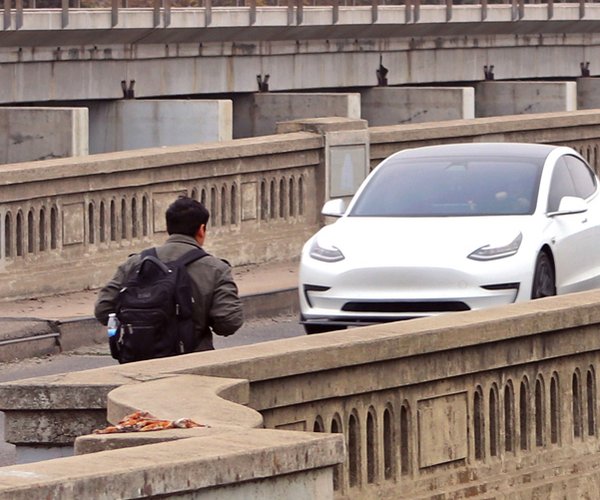The staff from the Courier’s sister newspaper, The Turlock Journal recently sat down with Rep. Tom McClintock (R-El Dorado Hills) at his Modesto office to talk about the Republican-controlled Congress’ sweeping changes to the political and regulatory landscape.
TJ: Let’s begin with The Big, Beautiful Bill. We know it’s big. Why is it beautiful in your estimation?
McClintock: Well, first of all, it stops the biggest tax increase in American history that’ll hit an average family in this district with about $2,000 in new income taxes every year, starting in January. If your family is earning $75,000, your taxes go up about $1,500. So, that’s the first and most important point, I think that point needs to be made. In addition to stopping that tax increase, it also provides major tax relief to working families. The president’s pledge of no tax on tips, no tax on overtime, and it’s slightly convoluted because of the details of reconciliation, but essentially it’s no tax on Social Security benefits. That part isn’t quite that simple, but that’s essentially what it mimics.
In addition to that, it relieves enormous pressure on Medicaid simply by requiring able-bodied adults to spend 20 hours a week either working or looking for work or even training for a job. Medicaid was specifically meant for the aged, blind and disabled. Under (President Barack) Obama, it has grown enormously to include a large number of able-bodied adults. So, this bill simply says we’ll continue to help you, as we always have, but we’re going to insist that you get up off the couch. If you’re able-bodied, you get up off the couch, and you spend 20 hours a week looking for work, which is only half of what all of those working families are doing every day to pay the taxes to support these programs. Bear in mind, Medicaid has doubled in cost in the last decade, and out of your average family’s tax bill, about $6,900 is now being spent for Medicaid. That, by the way, is more than our entire defense budget. So those are important points. It doesn’t cut Medicaid benefits, but it simply says if you’re an able-bodied adult, we expect you at least to be looking for work at least 20 hours a week. I don’t think that’s unreasonable. There are a number of other provisions in it, but I think that’s a very important one to note, given all of the hyperbole about people dying because they’re going to be losing their Medicaid. This is not a new concept. As you know, we had the same requirement under (President) Bill Clinton, and that measure cut the welfare rolls by about half. Turns out that if people have to go looking for work, they generally find it. And if they find it, they start to earn more money, and they get off the welfare rolls, which is the whole purpose of the work requirement. So, that was done away with under Obama, and we’re bringing it back.
(The bill also) unleashes America’s energy resources, which is already having a major impact on lowering energy prices. I mean, there are a lot of other moving parts to it, but you know those, I think, are the most notable. Not to mention the fact that it funds the border wall and beefs up the Border Patrol so that we can start moving out of this country the violent criminal gangs that the Democrats let in.
TJ: So, I can go home and tell my 81-year-old mother not to worry about Medicaid cuts, correct?
McClintock: … That is a very sincere fear. I had a young lady come up to me at the airport the other day on behalf of her grandmother, absolutely apoplectic that she’s going to lose her Medicaid benefits, because that’s what she’s heard the Democrats tell her. I said, “Is she over 65? Yes, then she’s got nothing to worry about. If she’s under 65 and looking for work, she’s got nothing to worry about.”
TJ: So, Mom is OK, and she’ll be glad to hear that. What about my 17-year-old son? According to the Congressional Budget Office, this bill adds more than $3.5 trillion to our national debt.
McClintock: Yes, based upon a GDP growth rate of 1.8% we believe that it’s going to be close. Three percent has been the post-war average of GDP growth. The CBO numbers are based on 1.8% growth. We’re basing our numbers on what I believe to be a very conservative three percent. At three percent, it actually shrinks the deficit, and that’s before you count in things such as the half a trillion dollars of rescissions that are also in The Big, Beautiful Bill over the next 10 years. Now, there are a lot of conservatives that believe that’s not enough. I happen to be one of them, but it’s a big start.
TJ: You probably saw today (May 27), the stock market was up 700-plus points. It’s probably not a coincidence that it happened right after President Trump announced that he was pausing the 50% tariffs on the European Union. And that’s kind of been the case for the last 30 days or so. He says one thing, the market crashes; he says another thing, it rises.
McClintock: A journalist recently hit the nail on the head when she said that Trump should be taken seriously, but not literally. And I think that’s very good advice. You know, my view on tariffs hasn’t changed in my entire life. I think they are a terrible idea. History is very clear that they harm whatever nation imposes them. You know, if we want to do serious damage to another country without actually bombing them, what do we do? Tariffs. They’re impediments against that country’s ability to import products. What are tariffs? They’re impediments against our country’s ability to import products. Why would we do to ourselves something we save for our worst enemies? You know, I was heavily influenced by Frederick Bastiat’s essays on free trade, which were now written 150 years ago in France, and yet they read like they were written yesterday in the United States. One of the principal points he makes is to look at all of the money that we’ve invested in great seaports and transoceanic cargo vessels digging tunnels through mountains, bridging great canyons. Why do we do all these things? For one reason only, that is to remove the obstacles that nature has placed in our way of trading with each other. Why, having done all that, would we then erect artificial barriers through tariffs that do exactly the same thing? So, these arguments have been around for many years, and history is very clear on this. Our country, during Jefferson’s second administration, imposed radical tariffs, produced one of the worst economic recessions in American history. In 1828, the Tariff of Abominations imposed by John Quincy Adams was one of the reasons that Jackson swept the elections and the Federalist Party ceased to exist. And then, of course, you have our experience in 1930 with the Smoot-Hawley Tariff Act helping to turn the recession of 1929 into the depression in the 1930s. So, the only justification in my mind for tariffs is to use them as leverage to get other countries to remove their trade barriers. It hurts us, but given the relative size of our economy to our trading partners, it hurts our trading partners more.
And so the question is, is (Trump) doing this in order to bring tariff barriers down across international trade or is he imposing tariffs because he really likes tariffs? He’s kind of said both on occasions. And I don’t know exactly which way he’s going. I’ve had two conversations with him now on this subject, fairly brief. I think our trade policy needs to be zero tariffs, zero subsidies and zero non-tariff barriers. And he just said very enthusiastically, “Yes, that’s exactly what I want to get.” And brief then, much more recently, about four weeks ago, I had a conversation — again, a brief exchange with him — and I said, “You know, the sooner you can start sending us bilateral trade agreements, the better.” And once again, he said, “Yes, I’ll be sending you a lot of those.” So, which way is he going to go? I don’t know.
I think he’s using this as leverage to bring down trade barriers across all of our trade, in which case it will produce a golden age of international trade for our country. Sure, if he’s imposing them because he actually likes tariffs, well, we’ve got plenty of experience with that, too, and it’s not good. So, and as I said in the budget hearing a few weeks ago, if that’s what he does, it will be one of the most tragic instances of self-sabotage in American history. But I don’t think that’s where he’s going. I think he’s going for free trade, and that’s why I’m not setting my hair on fire quite yet.
Now, if we don’t start to see a lot of bilateral trade agreements coming very soon, of course, we’ve already had one with the UK, and that’s not exactly free trade, but it’s certainly freer trade. If we can start seeing more of those, then I think we’re going to be in good shape. And again, these policies have to be in place before the summer. Why? Well, because the only economic indicator that really matters is the answer that people give to this question a year from now: Are you better off today than you were two years ago? You can’t spin the answer to that question. Everybody knows in their own lives how they’re doing. Sure these policies, the tax relief, the regulatory rollbacks and the free trade agreements, if they’re coming, all need some time to work before people actually feel them working in their own lives. And that’s why this has got to be done before the summer is over. If that happens, and by this time next year, I think we’re going to see one of the most remarkable periods of economic expansion in our nation’s history.
- Joe Cortez and Kristina Hacker contributed to this report.





